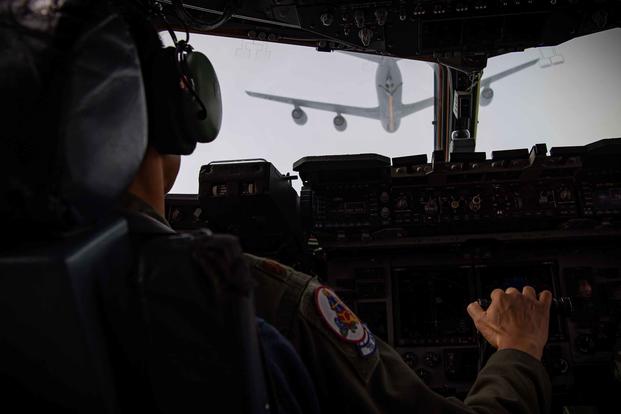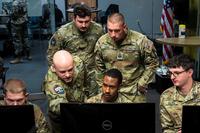While the novel coronavirus outbreak is "not helping" the U.S. Air Force's troubling, years-long pilot shortage, the head of the service's training command is hopeful some may have a change of heart and return during this difficult time.
"We tend to see those [service members who] may be getting out, or those [who] have recently gotten out, want to return to service inside of our Air Force," Gen. Brad Webb, head of Air Education and Training Command (AETC), told reporters Friday during a phone call from the Pentagon. "I expect that we will see some of that to a degree which will help mitigate [the pilot shortage]."
Webb compared the COVID-19 pandemic to the 9/11 attacks, after which many service members returned to duty or extended their tours. The military also saw a surge in new recruits after the attacks.
"This is another [scenario] that we're going to be assessing on a weekly, if not daily, basis," he said, referencing the outbreak's possible effect on retention and recruiting.
Related: Some Airmen Are Being Grouped in 'Pods' to Limit Coronavirus Spread
In February, the Air Force said it would fall short in its goal of producing 1,480 new pilots across the force by the end of fiscal 2020.
At that time, officials anticipated the service would produce roughly 1,300 pilots across all communities by year's end, showing steady improvement, they said. The service previously cited ambitious goals to ramp up pilot training in order to produce 1,500 pilots a year by fiscal 2022.
However, pilot training is operating at a "reduced capacity" while units implement COVID-19 protection measures, Webb explained. That includes moving airmen in shifts to bring them on duty during specific times, or grouping them in smaller, six-person "pods" as they go about their day-to-day routine, he said.
"While it's too early to know the full effects of COVID-19 on the flying training pipeline, we know it will be impactful," Webb said.
Across its entire training portfolio, which includes technical training for logistics, aircraft maintenance and civil engineering career fields, among others, AETC is navigating what risks it can take without detrimentally affecting readiness, the general said.
Webb said he does not foresee using a stop-loss measure -- an involuntary extension of service that keeps troops past their separation dates -- in the near future.
"We're not at that point yet," he said Friday. "If this were to continue for an extraordinary amount of time, and by that I mean multiples of months, we would probably have to.
"As the Department of Defense and certainly the Air Force, we continue to assess when we'd have to take other measures, but we're not there at this point," he added.
Webb stressed that AETC is in a position to capitalize on recruiting airmen virtually, saying connecting with prospective recruits through social media could become a staple method even after the pandemic passes.
"We have the opportunity now to never go back to old ways," he said. "There's a lot of good virtual innovation that's occurring, especially with respect to recruiting, that I'd be interested in retaining."
Webb could not provide data Friday on how many recruits have decided to sign up virtually in recent weeks, nor how recruiting overall has fared since bases and recruiting stations began implementing heightened protective measures.
In coming months, "the data will, of course, tell the tale on whether we [saw] a decrease in those numbers," he said.
-- Oriana Pawlyk can be reached at oriana.pawlyk@military.com. Follow her on Twitter at @Oriana0214.
Read more: One-Third of the DoD's Hospitalized COVID-19 Patients Are in the ICU












